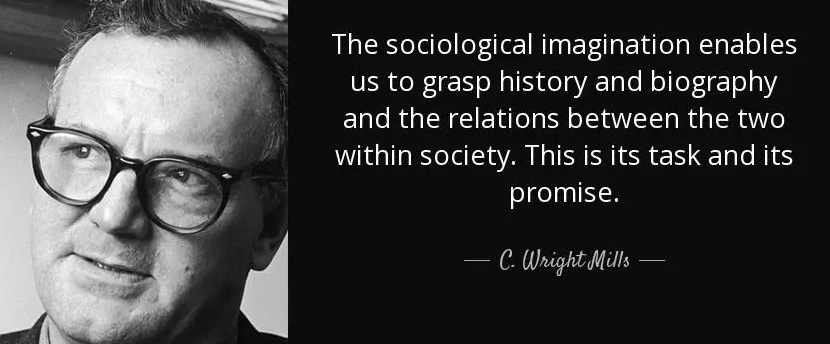A complete understanding of contemporary sociological imagination

Contemporary sociological imagination is inseparable from the dimensions that Mills referred to. However, it should also identify and view sociology within the general framework of human knowledge in the 21st century. Photo: FILE
There is no doubt that the “sociological imagination” is still a scarce resource in this age. The sociological imagination that we desire is, as Charles Mills highlighted, the academic vision to discover and compare issues within history, the ability to explore group rules in individual behaviors, and the capacity to grasp social connections among seemingly irrelevant phenomena.
True sociological imagination is that which highly reflects the age in which it is conceived. The concrete embodiment of sociological imagination is no longer the individual thoughts of Max Weber, Émile Durkheim or Georg Simmel. There won’t be, probably, any more convincing but ambiguous mystical allegories. All sociological theories should be strictly examined by the academic community and empirical study—Practice is the sole criterion for testing truth.
It requires a deep breath to find out that all the backbone theories for sociology have been founded and established though the effort of diverse great thinkers for centuries. A large number of intuitive and superficial connections of social phenomenon have been labeled through centuries of authenticating and falsifying. Fortunately or unfortunately, we are in this age of post-theory.
Mills did not answer the question as to what kind of sociological imagination we should have in this post-theory age. I think the predicament and embarrassment of Mills is that despite his criticism of all kinds of extreme phenomena in almost all groups of thought, he neglected the fact that there were still, within these groups, favorable traits of thought.
Contemporary sociological imagination, on the one hand, gains power from Mills’ inquiry, on the other hand, his poetic fantasies for individualization and anti-establishment should be avoided. Sociology should be identified and viewed within the general framework of human knowledge in the 21st century. At the least, contemporary sociological imagination requires the support of multi-dimensional power.
First, sociological researchers should be highly sensitive to new social phenomena. New social phenomena that are worth being studied usually lay outside the focus points of scholars. Therefore, sociological imagination requires contemporary sociological researchers to possess the ability to connect to various aspects of society, which means coming near even into real social affairs. This kind of connection cannot be achieved simply by returning to the context of Chinese history as the nation is in an age of change. The groups and phenomena in their historical context provide little aid to contemporary social studies in China. It is no doubt a challenge for those who are used to abstract concepts from phenomenon and find thread of thoughts in historical contexts.
Second, sociological researchers should be able to adequately imagine the correlative mechanisms among social phenomena. In today’s world, we cannot rely on personal or field experience to find inspiration. The mechanical intuition that you have, has either already been discussed by others, or has been discussed by other disciplines with a different concept. Even if discover a possibly important social connection, you might find embarrassed by being unable to find any data to empirically examine the idea.
In face of this challenge, researchers of quantitative studies should take a critical approach when dealing with both literature and phenomena, trying to find a competitive explanation. Another important point is that data should be a significant source of imagination.
Third, one should have the ability to thread together knowledge and methods of different disciplines. Social sciences require profound culture, learning and cultivation of humanities as well as scientific logic and methods. Maintaining the most respect for other disciplines and methods and cultivating a curious and strong awareness of threading together these knowledge and methods are the sources of imagination that contemporary sociologists should improve.
Last, sociological researchers should maintain a degree of professionalism and strive to keep a reasonable distance from the social phenomena and themselves. We should not trust too much in the power which an “individual” might provide to our explanation. Similarly, if we place too much faith in the power of “samples,” we might also lose the opportunity to make deep explanations for the differentiated social process. Therefore, we should always avoid being over-optimistic, whether we are conducting an “individual” or “sample” analysis, or aggregate analysis as we do in the big data era.
(edited by JIANG HONG)

 PRINT
PRINT CLOSE
CLOSE